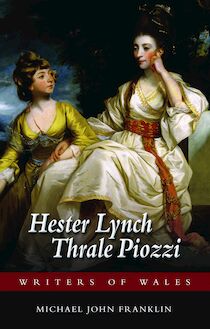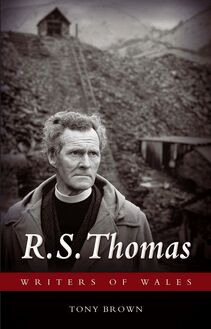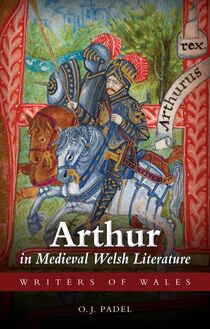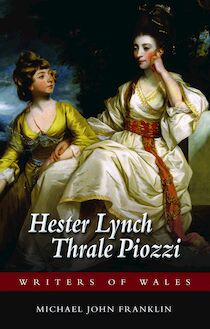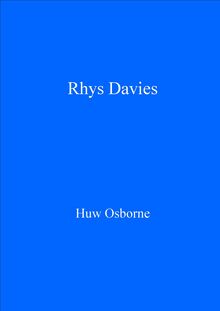Dylan Thomas , livre ebook
208
pages
English
Ebooks
2014
Obtenez un accès à la bibliothèque pour le consulter en ligne En savoir plus
Découvre YouScribe en t'inscrivant gratuitement
Découvre YouScribe en t'inscrivant gratuitement
208
pages
English
Ebooks
2014
Obtenez un accès à la bibliothèque pour le consulter en ligne En savoir plus
Publié par
Date de parution
15 avril 2014
Nombre de lectures
1
EAN13
9781783160594
Langue
English
Poids de l'ouvrage
6 Mo
1 'Begin at the beginning': introductory 2 'The sideboard fruit, the ferns': the poet in suburbia 3 'The loud hill of Wales': theWelshness of the work 4 'I'll put them all in a story by and by': aspects of the prose 5 'Now my saying shall be my undoing': the need to change 6 'Criss-cross rhythms': comparisons of earlier and later poems 77 7 'Ann's bard on a raised hearth': towards 'After the funeral (In Memory of Ann Jones)' 8 'Mostly bare I would lie down': a creative decade ends in war 9 'Arc-lamped thrown back upon the cutting flood'; 'This unbelievable lack of wires': wartime, film work, broadcasts 98 10 'We hid our fears in that murdering breath': the war elegies 11 'Parables of sun light': towards 'Poem in October', 'Fern Hill', 'Do not go gentle into that good night' and beyond
Publié par
Date de parution
15 avril 2014
Nombre de lectures
1
EAN13
9781783160594
Langue
English
Poids de l'ouvrage
6 Mo
Writers of Wales
DylanThomasEditors:
Meic Stephens
JaneAaron
M. WynnThomas
Honorary Series Editor:
R.Brinley Jones
Other titles in theWriters ofWales series:
Welsh Periodicals in English (2013), Malcolm Ballin
Ruth Bidgood (2012), Matthew Jarvis
Dorothy Edwards (2011), Claire Flay
Kate Roberts (2011), Katie Gramich
Geoffrey of Monmouth (2010), Karen Jankulak
Herbert Williams (2010), Phil Carradice
Rhys Davies (2009), Huw Osborne
R. S. Thomas (2006), Tony Brown
Ben Bowen (2003), T. Robin Chapman
James Kitchener Davies (2002), M. Wynn ThomasWriters of Wales
DylanThomas
Walford Davies
University ofWales Press
Cardiff 2014© Walford Davies, 2014
All rights reserved. No part of this book may be reproduced in any
material form (including photocopying or storing it in any medium
by electronic means and whether or not transiently or incidentally to
some other use of this publication) without the written permission of
the copyright owner except in accordance with the provisions of the
Copyright, Designs and Patents Act 1988. Applications for
the copyright owner’s written permission to reproduce any part of
this publication should be addressed to the University of Wales Press,
10 Columbus Walk, Brigantine Place, Cardiff CF10 4UP.
www.uwp.co.uk
British Library Cataloguing-in-Publication Data
Acatalogue record for this book is available from the British Library.
ISBN 978-1-78316-058-7
e-ISBN 978-1-78316-059-4
The right of Walford Davies to be identified as author of this work has
been asserted by him in accordance with sections 77, 78 and 79 of the
Copyright, Designs and Patents Act 1988.
The University of Wales acknowledges the financial support
of the Welsh Books Council.
Printed in Wales by Dinefwr Press, LlandybïeAcknowledgements
My thanks go to Ralph Maud for the pleasure of working with
him on our editions of the Collected Poems 1934–1953 and Under
Milk Wood, and for his seminal work as a scholar; to Paul Ferris,
for his indispensable biography and edition of the poet’s letters;
to John Carey, Christopher Ricks and Barbara Hardy for their
friendship and inspiration over the years; and to the late John
Ackerman, Gilbert Bennet, Gwyn Jones, Graham Martin and
John Wain, for their own work and for excellent conversations
about literature.
Angharad Watkins and Siân Chapman and their colleagues at
the University of Wales Press were models of wise and patient
guidance.
Grateful thanks go to Jeff Towns for expert information as to
the sources of the photographs that stand here as ‘Portraits of
the Artist’ between 1933 and 1952.
For permission to quote from the works of Dylan Thomas,
grateful acknowledgement is made to David Higham Associates
(London) for UK rights and to New Directions Publishing
Corporation (New York) for rights in the USA, its territories and
Canada.Frontispiece: 1952. Holograph of ‘Prologue’ to the Collected Poems
1934–1952: ‘At poor peace I sing / To you strangers, (though song /
Is a burning and crested act . . .’Contents
Acknowledgements v
List of Illustrations ix
Preface xi
1 ‘Begin at the beginning’: introductory 1
2 ‘The sideboard fruit, the ferns’: the poet in suburbia 5
3 ‘The loud hill of Wales’: the Welshness of the work 10
4 ‘I’ll put them all in a story by and by’: aspects of the prose 54
5 ‘Now my saying shall be my undoing’: the need to change 64
6 ‘Criss-cross rhythms’: comparisons of earlier and later poems 74
7 ‘Ann’s bard on a raised hearth’: towards ‘After the funeral
(In Memory of Ann Jones)’ 83
8 ‘Mostly bare I would lie down’: a creative decade ends in war 89
9 ‘Arc-lamped thrown back upon the cutting flood’;
‘This unbelievable lack of wires’: wartime, film work,
broadcasts 94
10 ‘We hid our fears in that murdering breath’: the war elegies 106
11 ‘Parables of sun light’: towards ‘Poem in October’,
‘Fern Hill’, ‘Do not go gentle into that good night’
and beyond 114
12 ‘Is my voice being your eyes?’: Under Milk Wood 129
13 ‘The rhymer in the long tongued room’: writing places and
the place of the poet 146
14 ‘As I sail out to die’: the late poems 151
15 ‘The hero’s head lies scraped of every legend’: the legend and
the man 162
Notes 170
Select Bibliography 176
Index 181Illustrations
The picture section is placed between pages 82 and 83.
Cover image: The poet in 1938. The silk necktie ‘made out of his
sister’s scarf, she never knew where it had gone.’
Frontispiece: 1952. Holograph of ‘Prologue’ to the Collected
Poems 1934–1952. (Reproduced by kind permission of Jeff
Towns.)
Figure 1: 1934. Aged nineteen in a London studio photograph.
(Every effort was made to contact the copyright holder.)
Figure 2: 1938. Aged twenty-four. (Reproduced by permission of
Jeff Towns.)
Figure 3: 1938. The recently married Caitlin and Dylan at
Blashford, Hampshire. (Reproduced by kind permission of
Jeff Towns.)
Figure 4: 1946. The poet of Deaths and Entrances and ‘Fern Hill’.
(Reproduced by permission of Getty Images.)
Figure 5: 1949. Inside the railings of a tomb in St Martin’s
churchyard in Laugharne. (Every effort was made to contact
the copyright holder.)
Figure 6: 1952. In Millbrook, New York State. (Photograph by
Rollie McKenna © Rosalie Thorne McKenna Foundation,
courtesy of the Center for Creative Photography, the
University of Arizona Foundation.)I
Brychan a Cristyn
a
Mari a Rhys
‘young and easy’Preface
Once it was the colour of saying
Soaked my table the uglier side of a hill
...
Now my saying shall be my undoing,
And every stone I wind off like a reel.
In a March 1932 letter to Stephen Spender, T. S. Eliot wrote ‘I
1always dislike everybody at the centenary moment’. Though
referring to the centenary that year of the death of no less a
figure than Goethe, his point was valid. The living relevance
of any worthwhile author does not arbitrarily depend on the
calendar, even when a round-figured centenary of a birth comes
round.
It is, after all, creative writers themselves, wording and
rewording as they do, who best illustrate the worthwhileness of
this travelling back. Instead of abandoning The Waste Land,T.S.
Eliot modestly turned to Pound to help winnow and transform
the manuscript. Even Wordsworth’s late sonnet ‘Mutability’
deprecates ‘yesterday’ –
which royally did wear
His crown of weeds, but could not even sustain
Some casual shout that broke the silent air,
Or the unimaginable touch of Time.
– and yet that superb phrase ‘the unimaginable touch of Time’
Wordsworth had salvaged from an abandoned poem.
Like Wordsworth and Eliot, Dylan Thomas too was much
possessed by time. He was also, in Eliot’s phrase about Webster
and Donne, ‘much possessed by death,/And saw the skull
beneath the skin’ – or as Thomas put it ‘I sit and watch the wormPreface
beneath my nail/Wearing the quick away’. The possession came
to be imagistically less morbid as the career developed, but a
preoccupation with time remained. In dramatizing Time rather
than just fearing it, he made Time imaginable (‘I saw Time murder
me’).
No wonder Thomas is everywhere memorably found
remembering. At the centenary of his birth, it is worth also our
remembering that he wrote some of the best birthday poems in
the English language (‘Twenty-four years’, ‘Especially when the
October wind’, ‘Poem in October’, ‘Poem on his Birthday’), let
alone other poems that celebrate his measured growth from
selfawareness to self-possession that do not even mention birthdays.
He is importantly good, not just on birthdays, but on days of
birth. For him, each diurnal round had always a somewhat
‘creationist’ resonance: ‘Awake my sleeper to the sun...’,‘the
mighty mornings of the earth...’,‘And this day’s sun leapt up
the sky’, ‘When I woke, the town spoke’, ‘And then to awake,
and the farm . . ./with the dew, come back’. Nothing merely
calendrical there. And of course a crucial aspect of the
originality of the early poetry is the wonder of even prenatal life:
‘Ungotten I knew night and day.’
And in reissuing parts of an earlier self – the imagined child
in the womb, a youthful thought or feeling, a brief memory, or
a complete childhood – there is often, as in the Wordsworth
example, a bibliographical aspect – the late retrieval of unused
phrases, lines, even whole poems that seem themselves almost
to have been lying in wait for their retrieval. ‘I’ve got’, Thomas
wrote to Vernon Watkins in April 1938, ‘one of those very
youthfully made phrases . . . that often comes to my mind & which
one day I shall use: “When I woke, the dawn spoke”.’ ‘One of
those very youth-fully made phrases’: the very phrase is itself
an autobiography. The poem that the phrase ultimately opened
was written in the summer of 1939, but it had lain abandoned in
a poem in the August 1933 Notebook. Michael Holroyd has
defined biography as a ‘reversing of the flow of time’: it is also
true of a writer’s bibliography. Thomas’s poetic hero was William
xiiPreface
Blake (‘I am in the path of Blake, but so far behind him that only
2the wings on his heels are in sight’) and as Blake once put it
‘Eternity is in love with the productions of Time.’ Period.
But so that return should not mean ‘retreat’ (except in Henry
Vaughan’s affirmative sense of the word as withdrawal for
reconstruction), Thomas kept pointing up the need for an artist
always to develop – in Eliot’s phrase, to ‘fare forward’, in
Thomas’s phrase to ‘advance for as long as forever is’. The four
Thomas lines quoted above as epigraph are the opening and
closing of ‘Once it was the colour of saying’, a pivotal poem of
1938, in which the naturalness of looking back (‘Once it was . . .’)
is leant against by the need to go forward (‘Now ...shall
be . . .’). It is this live contraflow in the poet’s writing, not just an
entry on a calendar, that makes the centenary of Dylan Thomas’s
birth when it comes around on 27 October 2014 meaningful. It is
also why ‘Once it was the colour of saying’ (with its wry take on
once upon a time) is a poem we shall need to revisit.
***
But even a critic welcomes the chance to travel back, to reconsider
something
